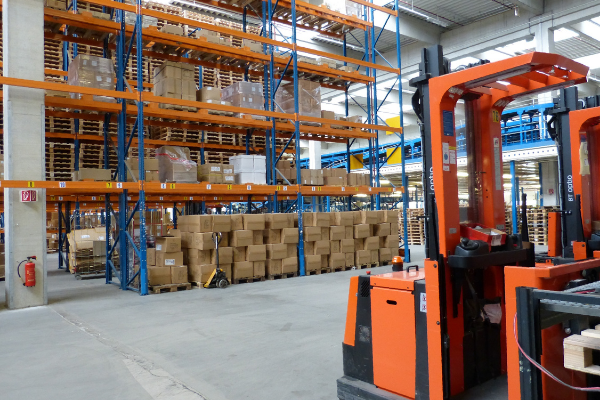
If you’re looking for a new investment opportunity, you may have come across the term “logistics REIT.” But what exactly is a logistics REIT, and should you invest in one? Here’s what you need to know about these intriguing investment opportunities.
What is a Logistics REIT?
A logistics REIT is a Real Estate Investment Trust that owns and operates properties used for logistics purposes. These properties can include warehouses, distribution centers, and other types of industrial buildings.
Logistics REITs typically generate income from rent paid by tenants who use their properties for storage or distribution purposes. Some logistics REITs also generate income from ancillary businesses, such as providing transportation or other services to their tenants.
Investors become shareholders mainly by purchasing shares in a publically-traded logistics REIT or by investing in a private placement. And since REITs offer a guaranteed income and there is also the convenience of real estate assets, they are undeniably attractive to investors who are eyeing the real estate market.
At Noyack Logistics Income, we are a logistics REIT capitalizing on macroeconomic trends, which means that we focus on investing in real estate that benefits from long-term structural changes in our economy. That should give you even more reasons to consider investing in our company and the logistics REIT market. That’s in consideration that we are always keeping tabs on crucial factors such as inflation, interest rates, technological advancements affecting the real estate sector, and more.
How do logistics REITs work?
Logistics REITs are similar to other types of REITs in that they offer shareholders the ability to invest in a diversified portfolio of properties without the hassle of directly owning and managing them.
However, logistics REITs differ from other types of REITs in a few key ways:
First, logistics REITs tend to focus on a specific type of property: warehouses, distribution centers, and other types of industrial buildings.
Second, logistics REITs often have business relationships with the tenants who use their properties. For example, some logistics REITs may provide transportation or other services to their tenants.
And third, logistics REITs often have long-term leases with their tenants. This helps to insulate them from the volatility of the real estate market.
REITs invite investors to pool their funds and invest in a common goal such as purchasing industrial buildings or land that can be used to construct industrial parks or buildings.
The investors will then benefits from their investments by earning dividends and real estate appreciation. One thing to keep in mind is that the nature of the market in which industrial REITs operate requires them to pay at least 90% of the total revenue acquired to the shareholders as dividends.
What are the benefits of investing in a logistics REIT?
There are several benefits of investing in a logistics REIT:
- Diversification
First, logistics REITs offer investors the ability to diversify their portfolios. By investing in a REIT, investors can gain exposure to a variety of properties without the hassle of directly owning and managing them.
- More reliable income
Second, logistics REITs offer investors stable and predictable income. This is because the leases that logistics REITs have with their tenants are often long-term and provide for a fixed amount of rent.
- Capital appreciation
Third, logistics REITs offer investors the potential for capital appreciation. This is because as the demand for logistics services grows, the value of logistics REITs’ properties is likely to increase.
- Easier real estate ownership
Fourth, logistics REITs offer investors the convenience of real estate ownership without the hassle of property management. This is because REITs are required by law to have a professional property management team in place.
- Rapidly growing industry
And we cannot also ignore the fact that the logistics industry is growing rapidly, thanks to the rise of e-commerce. This growth is expected to continue in the coming years, which means that now is a great time to invest in a logistics REIT.
What are the risks of investing in a logistics REIT?
Like all investments, there are risks associated with investing in a logistics REIT.
- Unanchored value
First, the value of logistics REITs’ properties is directly linked to the performance of the logistics industry. If the demand for logistics services declines, the value of logistics REITs’ properties is likely to decline as well.
- Real estate investment risks
Second, logistics REITs are subject to the same risks as other types of real estate investments. This includes the risk of declining property values, the risk of tenant defaults, and the risk of interest rate increases.
- Economic perils
Third, logistics REITs are also subject to general economic risks. For example, if the overall economy weakens, the demand for logistics services is likely to decline, which would negatively impact the value of logistics REITs’ properties.
- Tax or government regulation changes
Finally, changes in taxes or government regulations could also impact the value of logistics REITs’ properties. For example, if the government imposes new taxes on warehouses or distribution centers, the value of logistics REITs’ properties would likely decline.
To finalize,
That’s just about the basic information that you should know before thinking about investing in a logistics REIT. As with any investment, there are both risks and rewards associated with investing in a logistics REIT.
However, working with Noyack Logistics can help take much of the guesswork out of whether or not a logistics REIT investment is right for you.
Please contact us today to learn more about how we can help you invest in a logistics REIT.




